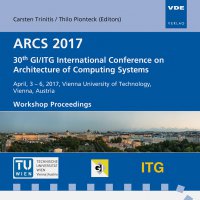A Methodology to Estimate the Energy Consumption and Processing Time for Image Processing Algorithms in Advanced Driver Assistance Systems
Conference: ARCS 2017 - 30th International Conference on Architecture of Computing Systems
04/03/2017 - 04/06/2017 at Vienna, Austria
Proceedings: ARCS 2017
Pages: 6Language: englishTyp: PDF
Personal VDE Members are entitled to a 10% discount on this title
Authors:
Hartmann, Christian; Widerspick, Christian; Fey, Dietmar (Department of Computer Science, Chair of Computer Architecture, Friedrich Alexander University Erlangen-Nürnberg (FAU), Germany)
Abstract:
Recent trends in the automotive sector led to the use of more computing architectures inside the car. The reason for this increase is the usage of new advanced driver assistance systems (ADAS) in order to avoid human made accidents. Headed by Tesla, BMW and Mercedes all vast automobile manufacturer attempt to integrate ADAS systems inside their cars. With increasing system complexity and increasing costs a methodology to determine the functional properties and also to predict the non-functional properties is necessary in the early project stages. In contrast to systems with standard PC solutions, image processing advanced driver assistance systems are part of the embedded field. These systems have strict constraints such as processing time and energy consumption. Nowadays, simulation environments are used to consider the non-functional properties in the early stages of the design phase. These simulators are often inaccurate and have long simulation time for complex systems. In our work we introduce a novel methodology, based on the reuse distance theory to estimate non-functional properties for image processing algorithms in advanced driver assistance systems.


